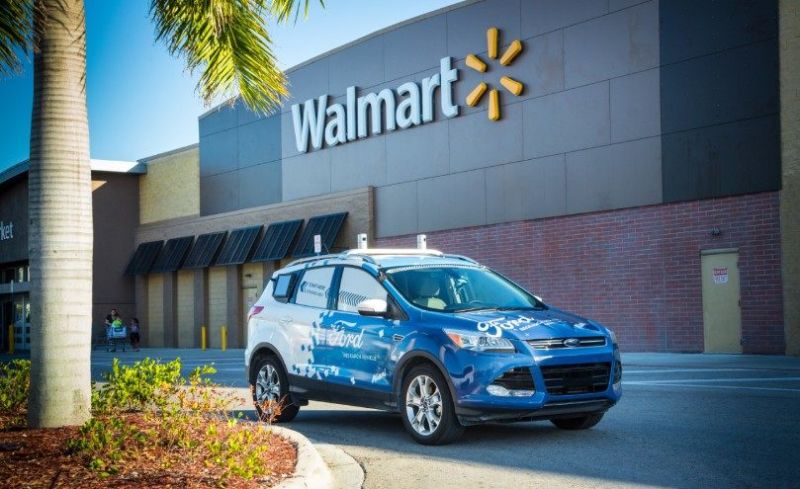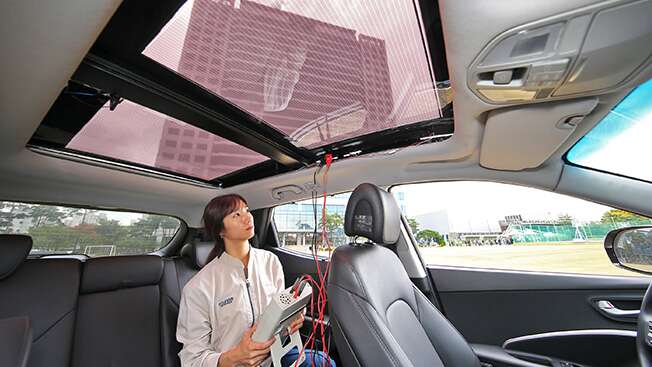British Columbia plans to end non-electric car sales by 2040
 VANCOUVER, B.C. - British Columbia's premier said on Tuesday his government will introduce legislation next year that will require all new light-duty cars and trucks sold in the province by 2040 to be electric or zero-emission vehicles.
Premier John Horgan said the province will phase in the sales targets, which apply only to new vehicles. They would start at 10 percent by 2025, rising to 30 percent by 2030 and 100 percent by 2040.
To support the plan, British Columbia would expand its fast-charging network and spend an additional $20 million Canadian ($15 million U.S.) this year on incentives for consumers who buy electric vehicles.
"We need to make clean energy vehicles more affordable, available and convenient," Horgan said in a statement. He noted the targets were part of a long-term plan to achieve ambitious carbon emission reduction goals.
British Columbia offers credits of up to C$5000 for the purchase or lease of new battery electric or plug-in hybrid vehicles, and C$6000 for new hydrogen fuel cell vehicles. It plans to expand the incentive program over time.
The province follows Quebec, which passed legislation in 2016 targeting 15.5 percent of sales and leases be zero emission vehicles by 2020. A number of U.S. states, including California, have similar laws designed to increase the supply and sales of plug-in electric vehicles.
Electric vehicle sales are booming in Canada, more than doubling in the second quarter of 2018 compared with the same period of 2017, according to clean-tech data firm FleetCarma. But demand is still far lower than for conventional vehicles.
Tesla's Model 3 is the most popular electric car in Canada, followed by Nissan's Leaf and General Motors' Chevy Bolt.
The International Energy Agency said last week that electric vehicles and more efficient fuel technology will cut transportation demand for oil by 2040 more than previously expected.
VANCOUVER, B.C. - British Columbia's premier said on Tuesday his government will introduce legislation next year that will require all new light-duty cars and trucks sold in the province by 2040 to be electric or zero-emission vehicles.
Premier John Horgan said the province will phase in the sales targets, which apply only to new vehicles. They would start at 10 percent by 2025, rising to 30 percent by 2030 and 100 percent by 2040.
To support the plan, British Columbia would expand its fast-charging network and spend an additional $20 million Canadian ($15 million U.S.) this year on incentives for consumers who buy electric vehicles.
"We need to make clean energy vehicles more affordable, available and convenient," Horgan said in a statement. He noted the targets were part of a long-term plan to achieve ambitious carbon emission reduction goals.
British Columbia offers credits of up to C$5000 for the purchase or lease of new battery electric or plug-in hybrid vehicles, and C$6000 for new hydrogen fuel cell vehicles. It plans to expand the incentive program over time.
The province follows Quebec, which passed legislation in 2016 targeting 15.5 percent of sales and leases be zero emission vehicles by 2020. A number of U.S. states, including California, have similar laws designed to increase the supply and sales of plug-in electric vehicles.
Electric vehicle sales are booming in Canada, more than doubling in the second quarter of 2018 compared with the same period of 2017, according to clean-tech data firm FleetCarma. But demand is still far lower than for conventional vehicles.
Tesla's Model 3 is the most popular electric car in Canada, followed by Nissan's Leaf and General Motors' Chevy Bolt.
The International Energy Agency said last week that electric vehicles and more efficient fuel technology will cut transportation demand for oil by 2040 more than previously expected.
by: www.autoblog.com

VANCOUVER, B.C. - British Columbia's premier said on Tuesday his government will introduce legislation next year that will require all new light-duty cars and trucks sold in the province by 2040 to be electric or zero-emission vehicles.
Premier John Horgan said the province will phase in the sales targets, which apply only to new vehicles. They would start at 10 percent by 2025, rising to 30 percent by 2030 and 100 percent by 2040.
To support the plan, British Columbia would expand its fast-charging network and spend an additional $20 million Canadian ($15 million U.S.) this year on incentives for consumers who buy electric vehicles.
"We need to make clean energy vehicles more affordable, available and convenient," Horgan said in a statement. He noted the targets were part of a long-term plan to achieve ambitious carbon emission reduction goals.
British Columbia offers credits of up to C$5000 for the purchase or lease of new battery electric or plug-in hybrid vehicles, and C$6000 for new hydrogen fuel cell vehicles. It plans to expand the incentive program over time.
The province follows Quebec, which passed legislation in 2016 targeting 15.5 percent of sales and leases be zero emission vehicles by 2020. A number of U.S. states, including California, have similar laws designed to increase the supply and sales of plug-in electric vehicles.
Electric vehicle sales are booming in Canada, more than doubling in the second quarter of 2018 compared with the same period of 2017, according to clean-tech data firm FleetCarma. But demand is still far lower than for conventional vehicles.
Tesla's Model 3 is the most popular electric car in Canada, followed by Nissan's Leaf and General Motors' Chevy Bolt.
The International Energy Agency said last week that electric vehicles and more efficient fuel technology will cut transportation demand for oil by 2040 more than previously expected.
by: www.autoblog.com



